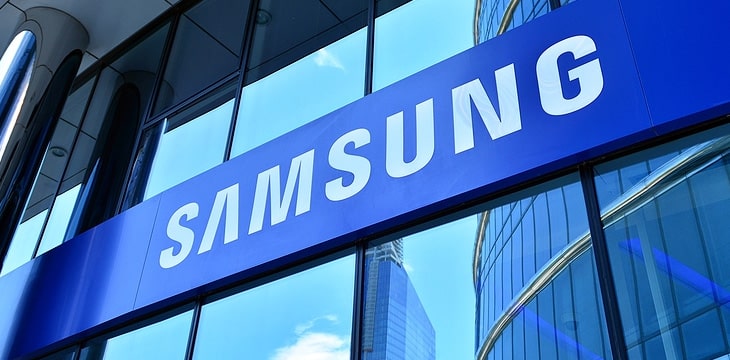|
Getting your Trinity Audio player ready...
|
South Korea tech giant Samsung Electronics Co. is weighing to invest upwards of $10 billion to build its most cutting edge logic chip producing plant in the United States, according to a Bloomberg report.
The company hopes this major investment will help them win more American clients and catch up with industry leader Taiwan Semiconductor Manufacturing Co. (TSMC). It is taking advantage of a U.S. government effort to counter China’s growing economic prowess and lure back home some advanced manufacturing roles that shifted to Asia.
Samsung is in discussions to build an Austin, Texas facility fitted for fabricating chips as advanced as 3 nanometers. Plans are still in their early stages and can change, but for now, the goal is to kick off construction this year, install key equipment in 2022, then commence operations as early as 2023, per Bloomberg sources.
Increasing the supply of 3nm chips on the market could bolster the ASIC manufacturing industry and the overall SHA256 hashrate by many factors. A single mining rig has hundreds of chips and hash production is based on the number of cores on the chip. When shrinking the process node, the performance typically increases between each generational chip.
The 5nm semiconductor chips are believed to bring significant improvement over the present-day top of the line 7nm chipsets used in today’s new generation of ASIC mining machines. Alongside better performance, the new chipsets should also provide benefits in power efficiency for hardware during block reward mining.
The envisioned facility is whispered to be Samsung’s first in the U.S. to use extreme ultraviolet lithography, the standard for next-generation silicon. When Bloomberg contacted the company for more information, Samsung representatives replied through email that they had yet to decide.
Samsung is trying to catch up to market leader TSMC in the “foundry business of making chips” for the world’s enterprises. If Samsung forges ahead, it will go head-to-head on U.S. soil with TSMC, which is also on track to build its own $12 billion Arizona chip plant by 2024.
Before closing the deal, it may attempt to negotiate potential incentives with the new U.S. President Joe Biden’s administration to ease its financial burden. They hope that such production bases in the U.S. will spur local businesses and support American industry and chip design.
The company hired staff in Washington D.C. to lobby on behalf of the deal. Even without significant incentives such as tax benefits or subsidies, the company may still go ahead with construction, the report alleges.
Plants in the United States might help the tech giant strike better deals with key American clients. Leading cloud computing providers like Google, MS Azure, and AWS are increasingly designing their own silicon to power their massive data centers more effectively. All require manufacturers like TSMC or Samsung to turn their designs into reality.
Some analysts question Samsung’s ability to carve out a meaningful share of a market controlled by TSMC. TSMC is spending $28 billion this year to ensure it stays at the forefront of technology and capacity. Samsung has expressed that it wants to be the largest player in the $400 billion chip sector. It plans to invest $116 billion into its foundry and chip design units over the next decade, intending to overtake TSMC by offering chips made using 3-nanometer technology in 2022.
See also: TAAL’s Jerry Chan presentation at CoinGeek Live, The Shift from Bitcoin “Miners” to “Transaction Processors”

 03-03-2026
03-03-2026 




